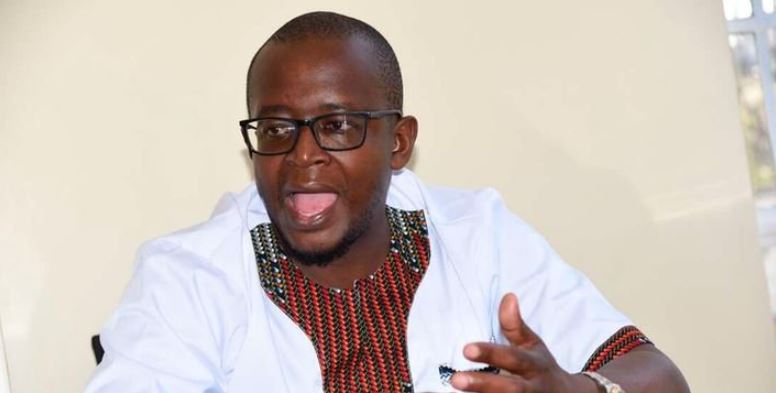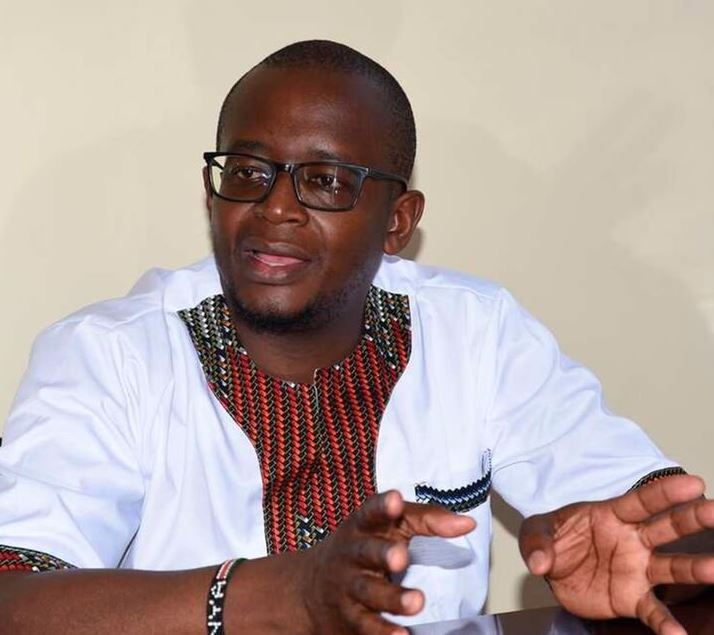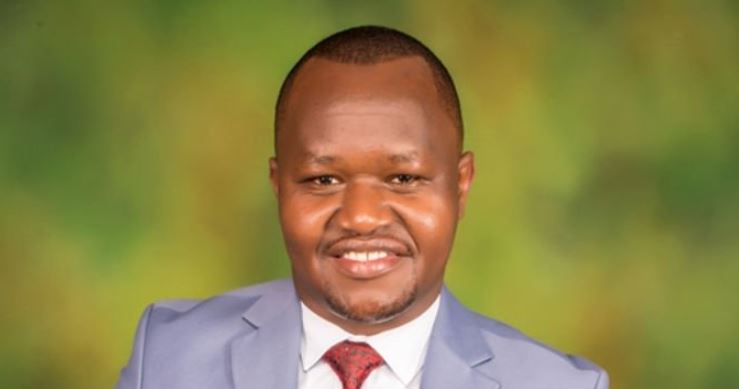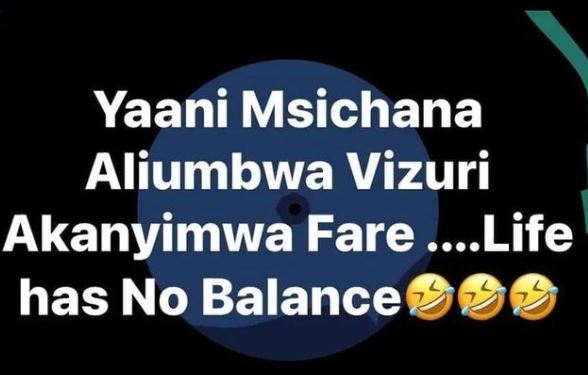
Having previously served as a council member at the Law Society of Kenya between 2014 and 2016, Theuri talks about the recent upheavals at the LSK, his challenges as Nairobi LSK branch chair, and why he is fit to be the next LSK president.
The LSK branch chairs caucus recently took up the leadership of the society. So far, what have you found to be the problem at LSK and how can it be fixed?
There was complete paralysis in the operations of the society. There were many conflicts and as the branch chairs, we tried many strategies to resolve those conflicts. At some point, we called for signatures to hold an AGM to discuss and solve the pressing challenges.
However, this did not work; there was a caretaker council in power that rushed to court to stop the AGM on the eve of the meeting. Sadly, it is the members that were most affected. Things were so thick that electricity and the internet were disconnected at the headquarters.
Advocates could not even do the most basic services such as doing due diligence before undertaking a matter, they could not verify details for buyers or even confirm if someone was a true advocate. It was very embarrassing. The problem at the society was not a legal problem; the leadership was the problem.
What has the branch caucus team done in the past month since taking over the helm of the LSK?
One month is a short time, but the staff are at ease. They know their salaries will come on time. There was a hitch, though – there were two employees who were hired by the caretaker council yet there were other people occupying those positions still. The problem is that there are two sets of employees being paid for the same position but we will sort this out.
We have ensured the office has basic supplies, including functioning photocopiers and printers, sanitary kits and printing papers. This was possible after we changed the signatories at the bank. We are also paying our debts.
How is the branch caucus’ relationship with the ousted president, Nelson Havi?
It is difficult to explain that relationship because what we did was not personal. He was our president with a mandate just as the branch chairs had a mandate to their members. LSK works in a way that the president and the branch chairs must work together heading towards the same direction.
The strained relationship between the two parties affected that seamless functioning. Beginning in 2020, the branches lacked funds to run their activities. It is one of the reasons for calling for the special general meeting. We went to court and the council was ordered to release the money. The fractured relationship affected the operation.
There was a long contest on the issue of auditing the LSK’s books, what do you think was the problem?
Auditing is a necessary process for any organisation running things on behalf of its members and the members are entitled to call for a forensic audit when they feel things are not right. Had it been non-contentious, the forensic audit would not have been necessary. The issue was actually on who and how the forensic audit should be conducted and the differences between the council and the secretariat over that brought suspicion among the two parties.
There was also history to that suspicion when there was an attempt to sack Mercy Wambua (LSK CEO), who is the chief accountant of the society. The council was divided over this matter and nine voted to keep her against three who voted that she be kicked out. Havi overruled the decision and Ms Wambua went to court and obtained orders to remain in office.
The two, Havi and the CEO, were engaged in many battles, what did you think of their tiffs?
It was unfortunate. It lowered the society’s esteem in the eyes of its members. Members kept asking us to intervene but it was tough. The president is the president for all of us – the branch chairs, the council and members of the society. Taking a position that favoured either the president or the CEO would have made us look partisan to either of the two parties.
What does LSK need in the next council?
A new leadership that will make it go back to the traditions of the LSK. Luckily, the term of the current council is ending soon. We have elections on March 10. The society needs someone who has demonstrated leadership, one with an understanding of how the branches operate and can bring that knowledge to the running of LSK. A leadership that is balanced and will take care of the welfare of LSK members and protectively take care of its members while conducting their mandate.
LSK was often left out in the process of lawmaking and policy formulation. Its participation was supposed to have been adding value before any bill was adopted by the Parliament. If this is done, Parliament will appreciate LSK’s value and the society will regain its erstwhile prestige, as it will be involved in lawmaking and policy formulation.
What are some of the biggest wins you have had during your tenure as the Nairobi chapter chairperson?
Working with the Judiciary to ensure that the e-filing introduced when the Covid-19 pandemic struck was a very big moment. This happened when most of the advocates, as well as staff in the Judiciary, had not had any training.
We conducted a lot of training for our members. I remember I was elected to office on June 6, 2020, and the system was launched on July 1, 2020. No lawyer had been trained on the system; some courts did not even have computers, leave alone proper internet connections. It was chaotic but we managed.
The other win is successfully ensuring that standardised practice directions were adopted for the Commercial and Tax divisions in High Courts around the country and the practice directions were even gazetted by the Chief Justice.
This solidly anchored the e-filing system. Another big win was enhancing a better working relationship with the Ministry of Lands when Covid-19 hit and most of the ministry’s offices were closed. The ministry agreed to be sending a list of completed transactions every two weeks and this way, advocates could monitor their clients’ transactions and send a list of delayed transactions for follow up by the ministry.
As such, we created a mechanism for feedback that was not there initially and it helped a lot. I was actively involved in the ‘purple ribbon’ campaign that was organised to pile pressure on the government to release Prof Hassan Nandwa, who is an advocate, together with his client.
This was intended to complement a court case we had filed for his release and to condemn the increased incidents of enforced disappearance, which if left unchecked will lead to a breakdown of law and order. The government had increasingly adopted a policy to abduct members of the public suspected of criminal activities instead of using the formal court processes.
The campaign was a success as it led to the Interior CS to call for a meeting with us and civil society organisations to address the issue. Also, under my leadership, the Nairobi branch organised a successful legal awareness week that for the first time involved visits to several prisons as well as the Kadhis Court. We also visited the Lang’ata Women’s Prison, where we conducted free legal aid and donated photocopiers and food for the prisoners
Tell us about your lowest moments?
This was when we did not have any money coming to the branches and our operations stalled. I would wake up every day wondering why I should continue sitting at the helm of the Nairobi branch yet had no money for our activities.
The Nairobi LSK branch has a big secretariat and an expenditure of almost Sh500,000 per month. I had to organise fundraisings, make phone calls seeking sponsorships. It was extremely difficult, and knowing the money was available at the headquarters but we could not access it made it even worse.
How do you intend to solve the chasm between the young and old lawyers in the society?
There is a huge and growing divide between the new and old generations in the profession. This profession has certain traditions that the seniors really respected. There is a feeling among younger lawyers that seniors are not treating them well during pupilage or when they are admitted to the bar. They also feel that LSK has no structure to deal with situations when there are struggles between them and their elders in the profession. They feel misused and disrespected by their seniors.
The seniors also feel the younger ones are arrogant and disrespectful towards them and as such, they shun the society’s activities. I usually like to use the quote from our former Chief Justice, Chunilal Madan, who said: “The young come with the benefit of recent learning and the old come with the benefit of experience.” No one is superior to the other. I will also set up an ethics and practice standards committee composed of the young, middle-aged and senior lawyers to arbitrate and mediate such complaints.
I will initiate mentorship programmes that will promote interaction outside the office. I will liaise with branches so that we have team-building activities that will reduce the inter-generational tension. We will develop a plan to come up with an ideal minimum wage depending on the location that one practises law.
My administration will also create an award that recognises law firms that remunerate and treat their employees well. This way, everyone will want to be recognised as being the best pupil master and this will wholesomely improve the working conditions nationally.
I will also strive to ensure the independence of the bar. Many advocates face hazards because of representing clients and I will ensure that this challenge is dealt with. We have organised several webinars to address the challenge facing young lawyers to address mental health challenges arising from the lack of opportunities for growth and generation of funds, financial planning to impart skills of running a business efficiently, and business planning for purposes of compliance with tax obligations.
Will you be running for the position of the next LSK president? Why do you think that position fits you?
Yes, I will be running for that position. I have the necessary experience that I have got from the leadership of various committees at the LSK. I was in the young lawyers’ Committee when I was young. I also served in the welfare committee of the society. I was also in the continuous professional development committee. I was also the co-convener of the police-advocate Committee that sought to improve the relationship between lawyers and police officers in the country.
Other than these committees, I am the current chairperson of the LSK Nairobi chapter that is the biggest, accounting for nearly 80 percent of the LSK membership representing almost 9,000 members out of the total 12,000. Nairobi being the capital city, many things affecting the LSK happen here, ranging from the Ministry of Lands, meetings with the Attorney-General as well as business registration services and I have been involved in all these undertakings. I believe this experience makes me qualify for the position.
Other people, including Caroline Kamende, Justus Wabuyabo, Bernard Kipkoech, Ombati Omwanza and Mathew Nyabena have also declared their interest in the same position of the LSK president. What do you think of them?
Yes, there are many contestants this time round. I wish everyone the best of luck as we run the race. May we all engage in a mature, professional way that tells our members that we are moving away from the acrimonious campaigns we have had before. Let everyone campaign in a manner that does not malign their competitor’s reputation.
What would you love to tell your competitors?
To my competitors, I ask you to be ready to work with me when I finally clinch the office of the LSK president.
What are your plans for increasing the capacity of practising lawyers in Kenya?
We have aggressively pursued new areas of practice for our advocates. We initiated together with a development partner the development of practice notes in environmental matters, specifically on climate change.
We organised a webinar to familiarise lawyers with the law and opportunities in the sector. We also intervened during the country’s negotiation of the Free Trade Agreement with the United States. This was intended to open up new opportunities for advocates with expertise in trade agreements.
What are the most common challenges raised by Kenyans regarding their pursuit of justice?
Whenever we engage with the common mwananchi the issue they complain about is lack of access to representation and that they are unable to afford advocates. We have lobbied for the quick establishment of the Small Claims Court that has increased the rate of disposal of cases below Sh1 million shillings.
We are also exploring the possibility of setting up a legal aid trust fund to facilitate advocates to provide pro bono services to members of the public. The other challenge with members of the public is with regard to the standards of ethics and practice. This informs my desire to reinvigorate training on the code of ethics as well as develop a simple digest of code of ethics for every young lawyer upon admission.









